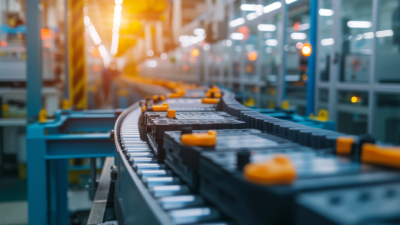In recent years, the e-commerce landscape has witnessed a remarkable transformation, with the food and beverage sector emerging as a frontrunner in online sales growth. Meanwhile, the convergence of automation and sustainable energy solutions is redefining the way food businesses operate, presenting unprecedented opportunities for growth and efficiency. As these trends reshape the food and beverage landscape, the cold storage sector finds itself at the crossroads of innovation and adaptation.
The Rise of Digital Grocery
Food and beverage led all categories in online sales growth in 2020, with gains in the channel more than doubling to 75% from 32% in 2019. The paradigm shift has been driven by convenience-seeking consumers who now prefer the ease of online shopping for their culinary needs.
This trend is expected to continue its upward trajectory, with industry experts projecting that food and beverage sales will constitute over 21% of total e-commerce revenue in the U.S. by 2027. From refrigerated warehouses to temperature-controlled transportation, the cold storage industry will play a pivotal role in meeting the stringent requirements of the e-commerce-driven food supply chain.
This growth is mirrored by the projection that the digital grocery market in the US will reach a value of $243 billion by 2025. However, the transformation is not confined to the digital realm alone; it extends to the very core of operations through the integration of automation.
 Will Falero
Will Falero
“The integration of robotics to streamline repetitive processes—such as packing, sorting, and processing—holds the promise of enhancing product presentation while simultaneously reducing operational costs.”
Automation: Elevating Efficiency and Customer Experience
Automation is rapidly reshaping the food industry, from production to distribution. The integration of robotics to streamline repetitive processes—such as packing, sorting, and processing—holds the promise of enhancing product presentation while simultaneously reducing operational costs. Adopting automation in food businesses also extends its benefits to cold storage. Automated systems can optimize inventory management, enhance temperature control, and reduce manual handling, all of which are crucial in maintaining the quality of perishable goods.
The boon of automation extends to increased productivity and resource optimization. A prime example of this is Kroger’s partnership with Ocado to roll out automated warehouses, aimed at revolutionizing their supply chain. Although the rollout has faced some delays, the commitment to automation remains steadfast, underscoring the industry’s determination to harness technology’s potential.
Driving Toward Sustainability with EV Truck Fleets
Sustainability has emerged as a driving force across industries, and the food sector is no exception. Transitioning to electric vehicles (EVs) not only aligns with environmental goals but also promises substantial financial benefits. By reducing fuel costs and leveraging government incentives, businesses can witness a marked reduction in the total cost of fleet ownership.
Notable corporations such as Amazon, Walmart and FedEx are leading the charge by incorporating thousands of electric delivery vans into their expansive fleets. These EVs are primarily earmarked for last-mile deliveries, a crucial step in the e-commerce supply chain. The financial advantage is striking—charging EVs can be up to 75% cheaper than fueling conventional gas-powered vehicles—according to the US Department of Energy. Moreover, embracing EVs bolsters brand reputation and sustainability credentials, fostering customer loyalty, and appealing to environmentally conscious recruits.
Even within the food industry, companies are recognizing the benefits of transitioning to EV fleets. Domino’s, for instance, has already deployed 811 EVs on the road, with plans to increase the count to 1200 by the end of 2023. This dual emphasis on electric vehicles and food delivery epitomizes the convergence of technology, sustainability and convenience.
Looking Ahead: How Colliers is Preparing for the Impact on Real Estate
Recognizing that the nexus of e-commerce, automation and sustainable practices is propelling the food and beverage industry into an exciting future, through close collaboration with grocers and food wholesaler clients, Colliers has developed and applied unique modeling capabilities and processes to help clients plan for 5-10 years of multi-temp distribution center capacity by square footage and clear height based on current and projected sales, regional growth plans, inventory levels, and product and site characteristics.
As we move forward, the seamless integration of these trends will likely shape a new era for the food and beverage industry—one that is digitally advanced, automated, and environmentally conscious.

 Todd Steffen
Todd Steffen

 Baily Datres
Baily Datres Mike Otillio
Mike Otillio
 Jesse Tollison
Jesse Tollison
 Patrich Jett
Patrich Jett